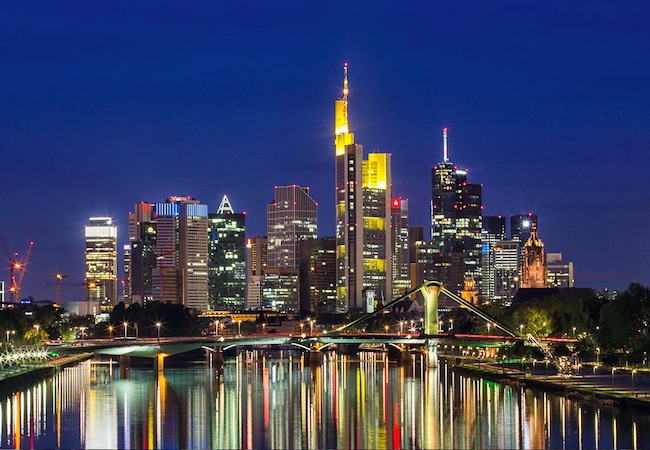
By Dalia Marin
The Volkswagen scandal has raised questions about the German model of production. If the success of the company’s diesel-powered vehicles was due in part to fraudulent efforts to conceal the amount of harmful pollutants they emitted, will similar revelations at other companies call into questions the country’s transformation from “the sick man of Europe” to an export-driven economic powerhouse?
Fortunately, the answer is almost certainly no. Germany’s competitive advantage has less to do with chicanery than with how its firms are structured and the culture in which they operate. Germany’s leading car company is an exception to the manufacturing rules that have driven the country’s success, not an example of them.
Indeed, Germany’s success is frequently cited as a model that other countries should emulate, and rightly so. Since the beginning of the century, the country has grown to become one of the world’s leading exporters, outstripping all other major European countries. From 2000 to 2013, Germany’s exports grew by 154%, compared to 127% for Spain, 98% for the United Kingdom, 79% for France, and 72% for Italy.
The leading explanation for Germany’s impressive recent export performance is wage restraint. But, as a comparison with Spain reveals, faster wage growth elsewhere cannot be the entire story. To be sure, from 2000 to 2008, German wages increased by 19%, compared to 48% in Spain. But after the 2009 financial crisis, the roles were reversed. From 2009 to 2013, German nominal wages increased by more than 14%, compared to 4% in Spain. And yet, despite the more rapid rise in German wages, the country’s exports rebounded faster than Spain’s – or those of any other European Union country.
The most important factor behind Germany’s success is that the structure of its firms improves the quality of their products. German exporters are organized in a way that is less hierarchical and more decentralized than other European firms. This gives them several advantages. Decentralization enables employees at lower levels of the corporate hierarchy to devise and implement new ideas. As these employees are often closer to customers than those higher up, their collective knowledge about what the market is demanding is an important source of value.
Tapping this knowledge allows Germany to compete on quality, not price. Indeed, if wage restraint were the main factor in Germany’s success, it would be hard pressed to outperform French, Italian, British, and Spanish exporters, who compete mainly on price by offshoring production to low-wage countries. Instead, the German focus on quality allows its firms to charge higher prices and gain new customers. When exporters are asked to rank their products relative to a market average, 40% of German exporters classify their goods as top quality, while only 10% of French exporters do so.
Decentralized management has helped German exporters triple their share of the global market for top-quality goods compared to those firms that did not reorganize. Indeed, when I studied the top 1% of German exporters – the country’s export superstars – I found that they more than doubled their share of the world export market when they opted to decentralize their organizations.
This focus on quality could explain why German exports rebounded quickly after 2009, despite the rise in nominal wages. Quality makes exporters less vulnerable to changes in price – including those driven by rising wages. By contrast, those countries in which firms compete on price may have felt more pressure to move production abroad as domestic wages rose. Germany’s relative insensitivity to rising costs could also explain why its government is comfortable with a strong euro, whereas France and Italy have been calling on the European Central Bank to weaken the currency.

Volkswagen, it turns out, took a different approach from that of most other German firms. Rather than decentralizing power, CEO Martin Winterkorn sat at the head of a centralized, command-and-control organization in which he acted as a patriarch. His desire to take the company to the very top of the global car industry, surpassing Toyota, put enormous strain on his managers to deliver growth. The result – a decision to cheat on emissions tests – says less about Germany’s culture of manufacturing than about rot at the car company, beginning at the very top.
According to the World Value Survey, Germany is a high-trust society, in which citizens have confidence in one another’s behavior and act accordingly. Indeed, the lesson of the Volkswagen scandal is that this culture may be necessary for its export model to work. French and Italian exporters that introduced decentralized management did not increase their share of the global market for top-quality goods. The likely reason is that providing division managers with greater autonomy not only frees them up to respond to market demands; it also allows them to put their own career interests above the wellbeing of the firm.
If Germany is to maintain its economic dominance, it will have to do something far harder than keeping wages in check or restructuring hierarchies. It will have to ensure that the culture of integrity underlying its success remains unchanged by the pressures of global competition.
Dalia Marin is a Research Fellow at Bruegel since October 2007. She holds the Chair in International Economics at the University of Munich. Her research interests are in the area of international economics, corporate finance and the organisation of the firm, and emerging market economies. Since obtaining her Habilitation in Economics from Vienna University of Economics she has been Assistant Professor at the Institute for Advanced Studies in Vienna, Associate Professor at Humboldt University Berlin, and a visiting professor or visiting scholar at Harvard University, Stanford University, Stern School of Business, New York University, the International Monetary Fund, National Bureau of Economic Research in Massachusetts, the European University Institute, and at the Wissenschaftszentrum in Berlin.




